This Must-visit Texas Festival Celebrates Black Communities, Cuisine, and Culture
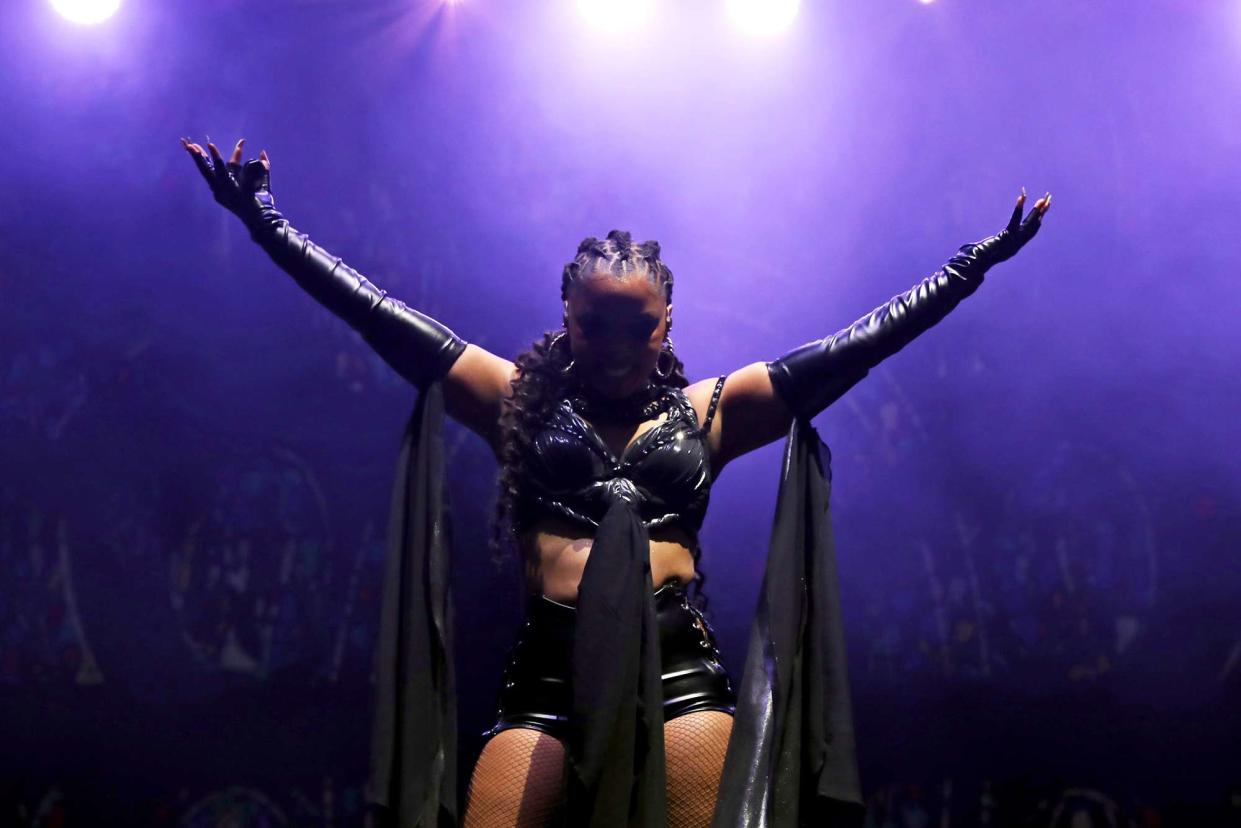
- Oops!Something went wrong.Please try again later.
I attended the inaugural Honeyland Festival — here's what it was like.
As the express bus pulled into the busy lot, I eagerly watched from my window seat alongside other curious attendees. I had finally arrived at the inaugural Honeyland Festival — a two-day event in Sugar Land, Texas, that gathers locals, artists, and foodies from across the country. (Sugar Land is a suburb located 30 minutes south of Houston.)
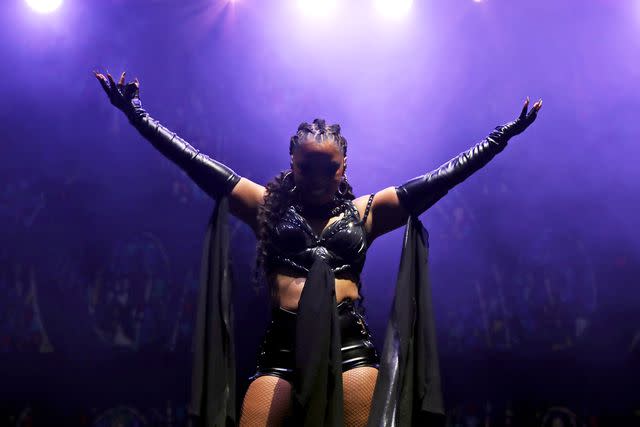
Rick Kern/Getty Images for Honeyland Festival
After getting my festival badge and going through security, volunteers gave us a "passport" to help us navigate the many programs at this event. The experiences were split between eats, sips, and music — the latter involved performances from artists like Tobe Nwigwe, the Houston All-Stars, Tems, Coco Jones, Summer Walker, Letoya Luckett, Lucky Daye, Miguel, Chloe Bailey, and Mary J. Blige.
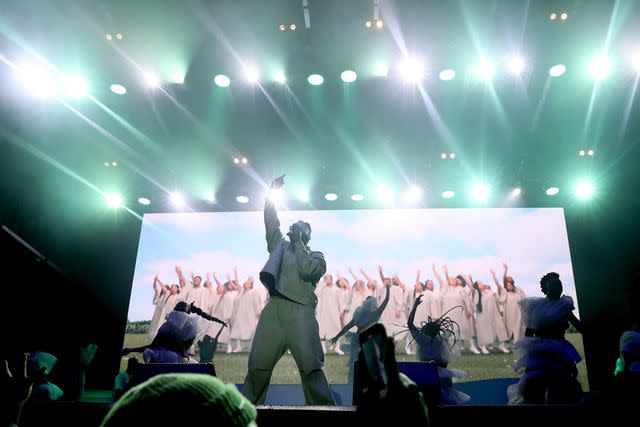
Rick Kern/Getty Images for Honeyland Festival
My first action item: heading over to rap legend Bun B's Trill Burger to earn my first passport stamp, where I feasted on their iconic OG burger accompanied by fries.
As I walked around, I was impressed with the production — from the food to the art pieces that inspired social media moments. I watched as excited guests took selfies, played lawn games, and visited vendors — all Black-owned.
"We celebrate Black expression and invest in the culture," the festival said on its site. "Our impact initiatives take it further with active steps towards fostering equity and Black excellence." As an attendee, it was clear Honeyland was doing just that by highlighting and amplifying Black talent.
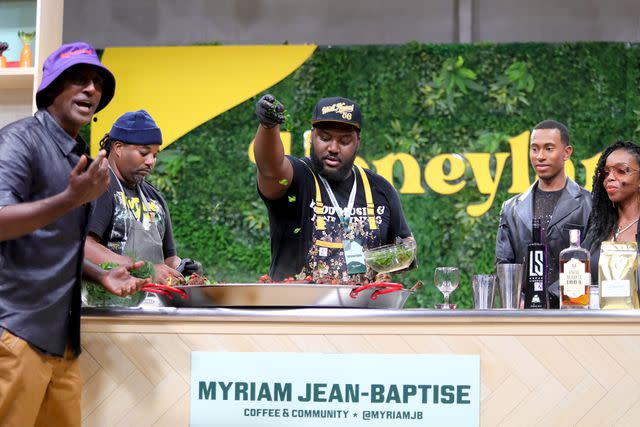
Bob Levey/Getty Images for Honeyland Festival
Pepsi Dig In shared this sentiment, bringing its culinary residency program to the event with local Black-owned restaurants like Sienna Wings and Cranky Grannys Sweet Rolls. The initiative not only gives small businesses access to major events like this, but also provides them with mentorship, training, and resources to fund such an opportunity too.
The VIP lounge let attendees experience demos hosted by the likes of award-winning mixologist Tiffanie Barriere and Karl Franz Williams, the owner of ginger beer company Uncle Waithley’s — both of whom make an appearance in Netflix’s newest season of High on the Hog in "The Black Mecca" episode.
"I found a silver lining as I watched a sea of Black folks like me celebrating Black talent on this same land that was built by our enslaved ancestors. "
On both days, though, there were conversations that were equally entertaining and thoughtful. Celebrity chef Marcus Samuelsson served as headliner on the culinary end ushering in fellow chefs like Serigne Mbaye of Dakar NOLA, an acclaimed West African restaurant in New Orleans, and the Bronx-based Culinary Collective behind Ghetto Gastro. Meanwhile, Fawn Weaver, the CEO of whiskey maker Uncle Nearest, led the charge from the beverage side of things, with special guests like Robin McBride of wine company McBride Sisters. The curated panels for the event conjured up a warm spirit of adoration and respect for talent who are normally othered in this industry.
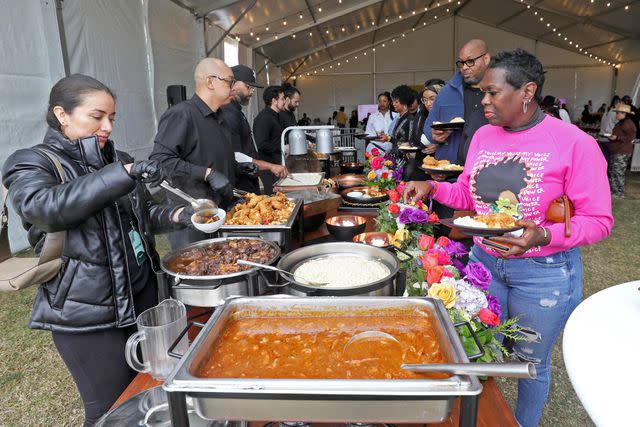
Bob Levey/Getty Images for Honeyland Festival
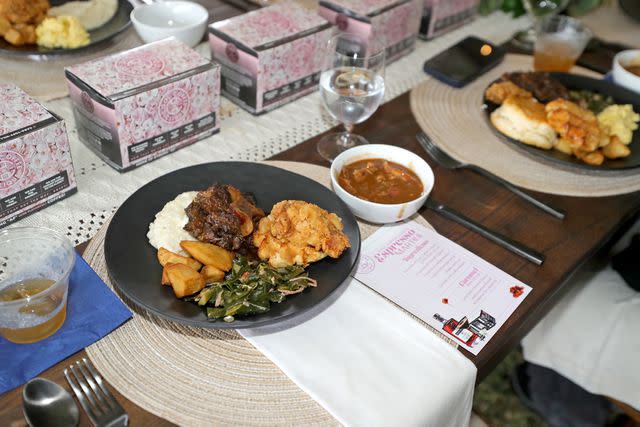
Bob Levey/Getty Images for Honeyland Festival
Amid all this, the historical significance of where I was wasn't lost on me. Sugar Land, which was discovered in the mid-1800s, had a thriving sugar plantation that was built using slave labor. Even after the abolition of slavery, the Houston suburb’s economy was fueled by the labor of wrongfully convicted Black workers, who were leased to the state. (Some 95 individuals died under the harsh conditions and were quietly buried in an unmarked cemetery, not discovered again until recently during construction.)
Somehow, I found a silver lining as I watched a sea of Black folks like me celebrating Black talent on this same land that was built by our enslaved ancestors.
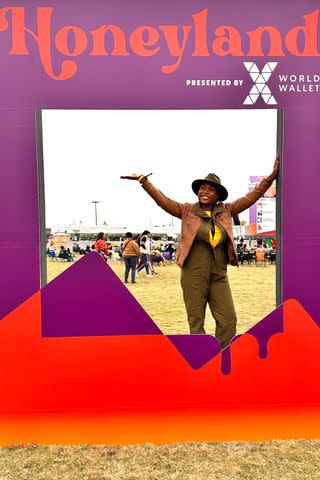
Shirlyn Cesar/Courtesy of Kareema Bee
Throughout the weekend, I was inspired to witness tastemakers greet each other like extended family at a reunion, relieved to be in a safe space. (As of 2017, Black chefs represent only about 10 percent of the culinary population, and those in wine and spirits make up an even smaller percentage.)
I also saw audience members arrive as spectators and leave as a community, as they listened to people who looked like them share the rich history of African and Afro-Caribbean cuisine in this country. At Honeyland, the organizers made it clear that Black chefs and business owners were making strides — and this was only the beginning.
I, for one, felt like a guest at a sacred dinner table. The entire experience made me feel as if I was having a good home-cooked meal I didn’t know I needed. And, surely, that's reason enough for people to get a taste for themselves next year.
To learn more about the Honeyland Festival, visit honeylandfestival.com.
For more Travel & Leisure news, make sure to sign up for our newsletter!
Read the original article on Travel & Leisure.

